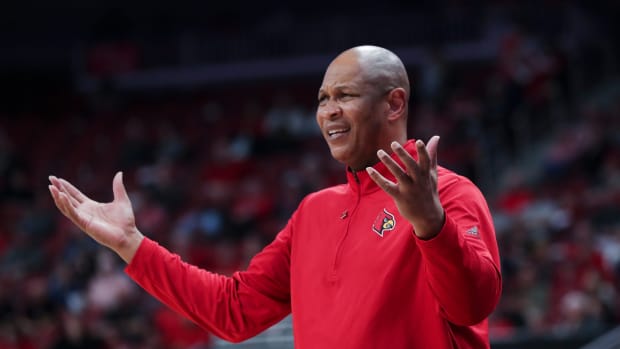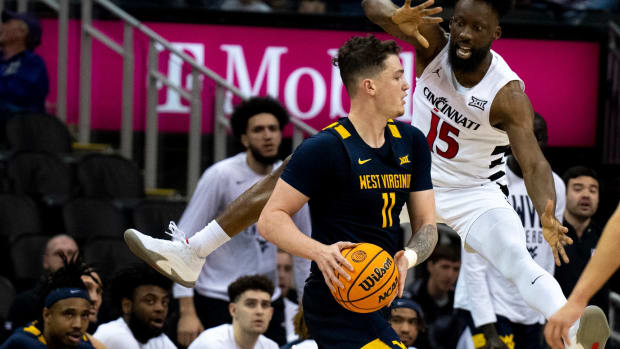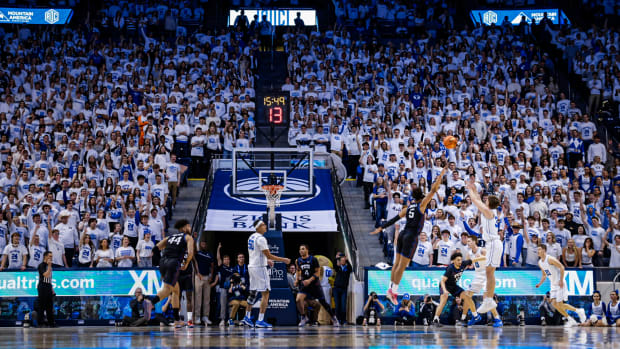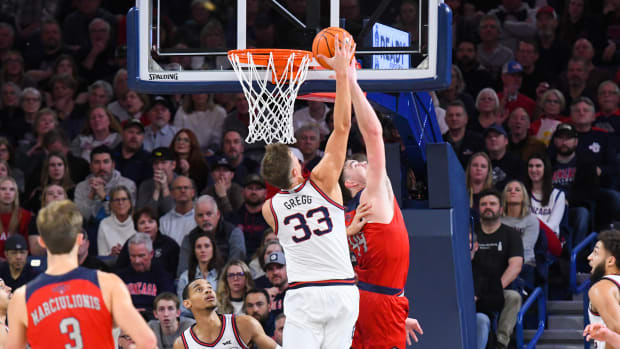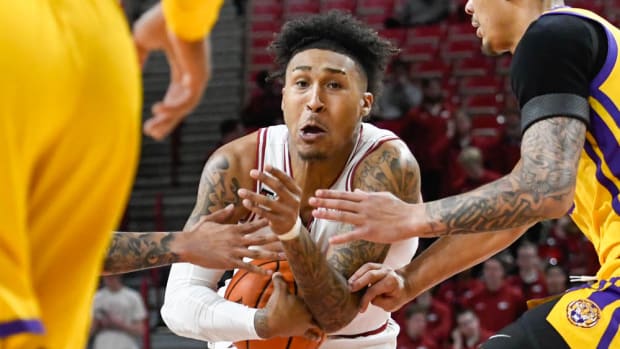James Wiseman Will Have to Sit Out 11 More Games, but Memphis's Fight With the NCAA Isn't Over
The James Wiseman eligibility saga now has a defined end date. But the problems are just beginning for the University of Memphis and basketball coach Penny Hardaway.
The NCAA ruled that Wiseman, the No. 1 recruit in the class of 2019, must sit an additional 11 games for accepting impermissible benefits before returning to action for the Tigers. That penalty includes the three games in which he participated to start the season, flouting NCAA feedback telling the school it was likely playing an ineligible player and should sit Wiseman.
The benefit was impermissible because of Hardaway’s status as a Memphis booster. Hardaway had made donations to the school in the past, including $1 million to help build the Penny Hardaway Athletic Hall of Fame at the school. Boosters cannot provide financial assistance to prospective student-athletes, their family members or friends unless that assistance is generally available to other members of the student body and is not given based on athletics ability.
While Memphis can breathe a sigh of relief that the 7-foot-1 Wiseman will return to action this season, it must also come to grips with a situation it unilaterally complicated. Had the school followed NCAA protocol from the beginning, this situation would have been remedied earlier—and with far less possibility of further penalties.
Wiseman and Hardaway went to court Nov. 8 to obtain an injunction against the NCAA, and Wiseman played that night against Illinois-Chicago and four days later against Oregon. He also played in Memphis’s season-opener against South Carolina State, despite the school being warned that there could be an eligibility issue.
While that burst of defiant bravado played well with the fans and probably felt good in the moment, it may ultimately prove very costly for the school and Hardaway. Multiple sources familiar with NCAA enforcement procedures told Sports Illustrated that a major infractions case targeting Memphis is now likely.
The violation in question occurred when Wiseman was in high school and living in Nashville. Hardaway, then an AAU and high school coach, paid $11,500 to help the family’s relocation to Memphis. Wiseman enrolled at Memphis East High School, where he was coached by Hardaway.
As a former player and donor at Memphis, Hardaway was a representative of the school’s athletics interests, making the payment impermissible. Now, as the coach of the Tigers, Hardaway’s involvement—with the school’s backing—in ignoring evidence of NCAA violations and playing Wiseman will be the issue going forward.
When Memphis played Wiseman the NCAA issued an unusually stark and public comment about it via Twitter. The statement: “The University of Memphis was notified that James Wiseman is likely ineligible. The university chose to play him and ultimately is responsible for ensuring its student-athletes are eligible to play.”
That’s a big risk for three games in November—one of which the Tigers lost.
As one source told SI: “This would fall under aggravating circumstances. Knowingly playing an ineligible player could give a Committee on Infractions panel the leverage to apply harsher sanctions.”
The decision to play Wiseman was backed all the way to the top, with cheerleading statements from both the school president and athletic director.
"Particularly given the unique circumstances in this case, we are hopeful for a fair and equitable resolution on James' eligibility," Memphis President M. David Rudd said. "We support James' right to challenge the NCAA ruling on this matter. The University of Memphis has high standards of ethical conduct for all faculty, staff and students, and we take seriously any allegations or conduct that is not aligned with our mission. We will acknowledge and accept responsibility for proven violations of NCAA bylaws. The University of Memphis firmly supports James, Coach Hardaway and our men's basketball program in this matter.”
Added athletic director Laird Veatch: ”The University of Memphis is enjoying a tremendous period of positive momentum and success on multiple fronts including the excitement surrounding our men's basketball program. This matter is extremely unfortunate and frustrating at this special time in our history. We will continue to be cooperative, respectful and professional in our dealings with the NCAA, while availing ourselves of every resource in the best interests of our student-athletes, our coach, and our University. It is clear to me in my short time here that Memphians will stand up and fight, both for each other and for what is right, and I am proud to stand with them."
Standing up to fight is one thing. Creating a fight that could prove bloody and costly is questionable leadership.
